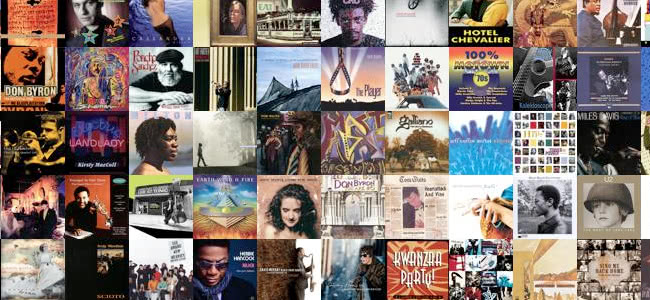While many argue that the traditional artistic value of the album format is dying, digital technology is set to prevail again with news from the United States that digital album sales are looking to break last year’s record of 1.3 billion copies sold.
According to the latest stats from Nielsen, digital album sales in the US are up 15% from the same period in 2011, which is also an enormous leap considering that back in 2004, Neilsen states that digital made up less than 1% of total album sales in America.
Given the increasing popularity of streaming services such as Spotify and Rdio, which is now a $1 billion industry, these latest figures confirm that music fans are still willing to purchase and download entire albums, with the total digital share in the US now more than doubling since 2007.
While the ‘singles market’ and trend of purchasing individual songs has arguably moved towards the streaming services (why pay for a single song when you can stream it as many times as you like for free?), it demonstrates that consumers are still looking at whole album downloads, keeping their sales strong.
The growth of digital music has shown a sharp increase over the past few years as consumers continue to put access and availability ahead of hard-copy music ownership. The latest news follows reports in June from BPI (the British music industry’s official body) that digital music sales in the UK had surpassed that of physical sales, such as CDs and vinyl, for the very first time.
David Bakula, Senior Vice President of Client Development at Nielsen, notes the trend towards digital music culture and the way emerging technologies will continue to shape the way that music is discovered, marketed, consumed and sold.
“As we look ahead, it’s clear that digital music purchases—and consumption through streaming sources—will continue to grow, and that consumers’ appetites for digital music will change at the speed of technology,” Bakula said.
As you may have surmised, the rise of digital sales isn’t limited to the US and UK markets, as global music sales are set to follow a similar path.
As we reported earlier in the year, forecasts from Strategy Analytics predicted that the sales of digital music worldwide – including downloads and streaming services – would overtake physical sales by 2015.
The shift towards digital downloads doesn’t come as a surprise given the ubiquitous nature of smart phones and tablets. Music formats have constantly evolved – from vinyl to cassettes to CD’s to the emergence of digital albums and online streaming. We questioned whether vinyl could save the album format but it seems it might not need saving after all, providing the increase in digital album sales continues in the US and is reflective of a global market.
It seems that both culturally and business-wise, digital is the future of music, a fact that ARIA CEO Dan Rosen discussed frankly in our interview about the future of the Australian Recording Industry Association.
If streaming and digital consumption is indeed the future of music, then “ARIA will still be as relevant then, as it is now,” vows Rosen. Noting that digital trends are “merely the latest evolution in how people consume recorded music – from the phonograph, to vinyl, cassettes, CDs, through to digital downloads.”
Interestingly though, most digital music is not ‘owned’ in the traditional sense, but simply licensed out to those who spend their money on downloading their digital music libraries – so what happens in a future where nobody owns music anymore? It’s a question we explored in our recent opinion piece on the issue…

































